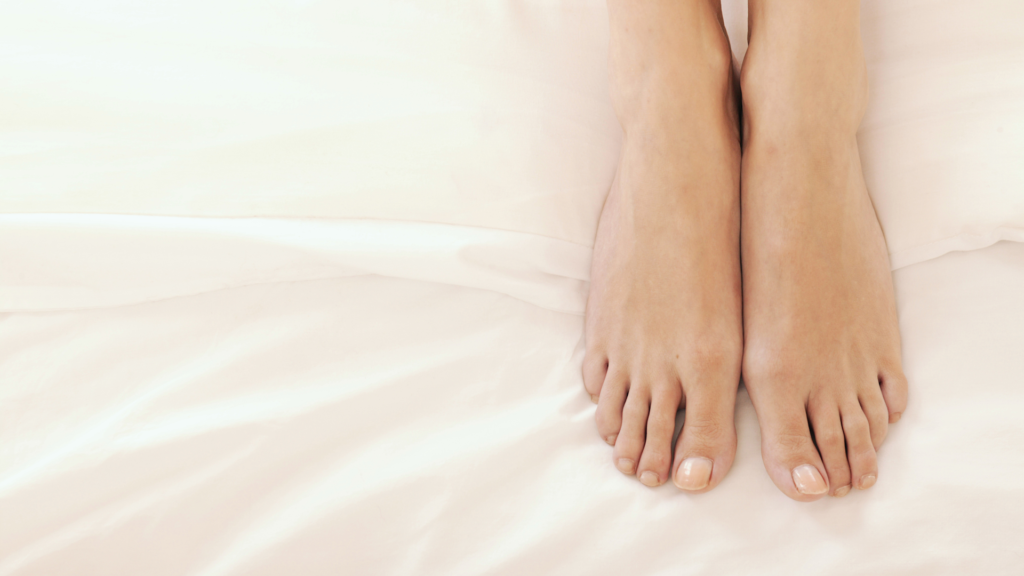Whether you’re wearing bulky boots in winter or breaking out the summer sandals, you might be dreading that large bump next to your big toe. Bunions are large, painful bumps that develop on the inside of a foot, where the big toe joint bends—often causing the big toe to bend sideways and face the other toes. Painful and permanent, those who have bunions will do almost anything to find relief. We spoke with Fairview Range’s Dr. Stacey Helland, DPM, to learn more about what causes bunions, what treatments are available, and how to reduce pain.
First of all, many people want to know, are bunions hereditary?
“Bunions in and of themselves are not hereditary; however, biomechanics (the way you walk) causes the formation of the bunions and foot structures that predispose an individual to forming a bunion, which is hereditary.”
Can shoes (high heels in particular) cause bunions?
“Yes, heeled shoes and tighter fitting shoes can lead to the formation of bunions. In addition, heeled shoes lead to a contracture of the Achilles tendon which can also lead to the development of bunions as well as many other types of foot pain.”
How can you treat bunions?
“If a bunion is flexible (you can easily pull the toe straight and bring it back to a straight position), a bunion splint and orthotics that correct the way you walk may help decrease progression of a bunion deformity. Most bunions, however, are more rigidly contracted. A silicone bunion sleeve can be ordered online and can sometimes be found over-the-counter at local department stores. The bunion sleeves can decrease the pain from bunions rubbing in shoe gear. Wider shoe gear can also decrease rubbing from the bunion on the shoe. If these modalities have been attempted and the bunion still causes pain, then surgery may be indicated to decrease the deformity and the pain.”
Can you grow to have bunions at any point in your life?
“Yes, bunions can develop at any age.”
If I have bunions removed, can they come back?
“Yes, bunions can come back. This can sometimes be prevented, but multiple factors can contribute to the recurrence of a bunion. If a patient is starting to notice a recurrence of a bunion, it should be discussed with the podiatrist as early as possible to implement preventative measures.”
What if I choose not to get my bunions removed?
“As a general rule, if a bunion is not painful and it is not causing wounds from rubbing on your shoe gear, it does not necessarily need to be surgically corrected. If the bunion is causing open wounds from constant rubbing in shoe gear or if it is causing pain in other areas of the foot, surgery may be indicated. There are more than 100 procedures and combinations of procedures to fix a bunion, so some post-operative recovery courses are more or less extensive based on the patient’s goals.”
If you are struggling with bunion pain, speak with your podiatrist to learn more about what treatment options are best for you.

